This article was medically reviewed by Luba Lee, FNP-BC, MS. Luba Lee, FNP-BC is a Board-Certified Family Nurse Practitioner (FNP) and educator in Tennessee with over a decade of clinical experience. Luba has certifications in Pediatric Advanced Life Support (PALS), Emergency Medicine, Advanced Cardiac Life Support (ACLS), Team Building, and Critical Care Nursing. She received her Master of Science in Nursing (MSN) from the University of Tennessee in 2006.
There are 14 references cited in this article, which can be found at the bottom of the page.
wikiHow marks an article as reader-approved once it receives enough positive feedback. In this case, 88% of readers who voted found the article helpful, earning it our reader-approved status.
This article has been viewed 214,140 times.
Experts agree that a ruptured or herniated disc may cause pain, numbness, and weakness in part of your body, including back pain. A herniated disc occurs when one of the spongy discs that cushion your spine becomes damaged, causing it to bulge or bust open.[1] Unfortunately, pain from a herniated disc may make it hard for you to sleep. Research suggests that finding a comfortable position may help reduce your pain.[2] Additionally, your doctor may be able to recommend pain medication to help manage your symptoms so you can get the rest you need.
Steps
Sleep Position
-
1Sleep on your side to help relieve pain. When you have a herniated disc, sleeping on your side may be the best choice. Try sleeping in a fetal position with the body pillow to support your weight as you lie on your side. This will help to alleviate some of the pain associated with a herniated disc.[3]
- Try putting a pillow between your knees if you sleep on your side.
-
2Sleep on your back with a pillow under your knees if that’s more comfortable. Sleeping on your back with your knees slightly bent and supported by a firm pillow is a good position if you have a herniated disk in the lumbar region. This position takes pressure off of your lower spine, which will allow the maximum amount of healing to take place while you sleep. Place a pillow under your knees to support them.[4]
- You can also place a pillow under your lower back to reduce the amount of pressure on your spine.
Advertisement -
3Don’t sleep on your stomach if you have a herniated disc. Sleeping on your stomach is the worst position, even if you have a healthy back. Stomach sleeping flattens the natural curve of your spine and it puts additional strain on your back muscles.[5]
-
4Try several different sleeping positions. Everyone’s experience with a ruptured, or herniated, disc is different. A sleeping position that works for one person might not be the best for someone else. Try a few different positions and choose the one that leaves you with the least pain.
- Try making yourself fall asleep in a new sleeping position. If you wake up in the middle of the night in a different position, try returning to the new sleeping position.
Bed and Pillows
-
1
-
2Consider an adjustable bed to alleviate pressure on your spine. For many people suffering from a ruptured disc, lying down is a painful experience. If you find lying flat to be too painful, consider sleeping in an adjustable bed. You can adjust it to prop you up, possibly alleviating pressure and pain on your spine.[8]
- If you have trouble adjusting to an adjustable bed, try sleeping in the adjustable bed for at least a few hours each night. Increase the amount of hours spent in the adjustable bed as you become more comfortable with it.
-
3Try sleeping in a reclining chair to relieve pressure. A chair that reclines can be a good place to sleep if you are suffering from a ruptured, or herniated, disc. Since a reclining chair props you up, it can help relieve some of the pressure on your lower spine. If you find other sleeping positions uncomfortable, try a chair that reclines.[9]
- If you still want to sleep in the same room as your spouse or partner, try moving a reclining chair into the bedroom.
-
4Place a pillow between your knees to relieve spinal pressure. If you sleep on your side, consider sleeping with a pillow between your knees. This can add comfort and relieve some pressure from your spine.[10]
- Try using a small pillow made of memory foam, which will shape itself to the contours of your body.
Good Sleep Practices
-
1Go to bed only when you’re sleepy. If you are suffering from a ruptured disc, you are likely dealing with pain that may increase at night. Going to bed when you’re not tired can make falling asleep difficult, and this can be even more challenging with spine pain. Try to go bed only when you are tired.[11]
-
2Don’t use electronics before bed. The light emitted by phones, computers, and other devices can confuse your body into thinking it is still daytime. This can make it harder to fall asleep at night. Keep phones, computers, and televisions out of your bedroom.[12]
-
3Keep your bedroom dark and cool. A good night’s sleep is easier if your bedroom is completely dark and the temperature is cool. Try using blackout curtains to block any incoming light from your bedroom windows. Keep the temperature cool, yet comfortable.[13]
-
4Avoid nicotine, alcohol, and caffeine. Smoking, consuming alcohol, and having caffeinated beverages can all disrupt your sleep. If you’re already struggling to sleep, skip these stimulants and use relaxation techniques to unwind in the evenings.[14]
-
5Make sure you’re getting enough magnesium. Magnesium is an important nutrient that helps regulate your sleep. If you have a magnesium deficiency, you might find it harder to sleep well. Eat plenty of magnesium-rich foods, like leafy green vegetables, legumes, nuts, whole grains, yogurt and milk.[15]
-
6Get regular exercise. Staying physically active during the day can also help to improve your sleep at night.[16] Get up throughout the day if you have a sedentary job and take a walk around the building or even through your office. Also, try to fit in at least 30 minutes of physical activity on most days, such as by going for a walk, bike ride, or swim.
-
7Use relaxation techniques. Relaxation techniques such as meditation and progressive muscle relaxation can be helpful for relieving pain and promoting a good night’s sleep.[17] Try to set aside at least 15 minutes per day to practice a relaxation technique. Doing a relaxation technique right before you go to bed may be especially helpful.
- You may also try taking a warm bath or shower, listening to soothing music, or having a cup of herbal tea to help you relax before bed.
-
8Apply ice to sore areas. Ice can help to reduce pain and decrease inflammation in a localized area.[18] Apply a towel-wrapped ice pack to the affected area for about 10 minutes before you go to bed. Make sure to remove the ice pack before going to sleep because leaving it in place for too long may result in tissue damage.[19]
-
9Take an over the counter anti-inflammatory pain medication. An NSAID, or non-steroidal anti-inflammatory medication, can help to reduce pain and inflammation in your back.[20] Consider taking a dose of an NSAID about an hour before bed to help reduce the pain in your back and make it easier to fall asleep.
- Follow the manufacturer’s instructions for dosing or ask your doctor for a recommendation.
- Your doctor can also prescribe a stronger NSAID if the over the counter version is not helping.
-
10Ask your doctor about a prescription for a muscle relaxant. If nothing seems to help and you are still having a hard time sleeping, then you might consider asking your doctor about a prescription muscle relaxant.[21] A muscle relaxant can help to ease the tension in your back and make it easier for you to get a good night’s sleep.
References
- ↑ https://www.uofmhealth.org/health-library/hw226016
- ↑ https://www.aafp.org/afp/2003/0515/p2195.html
- ↑ https://www.sapnamed.com/blog/choosing-the-best-sleeping-positions-with-back-pain/
- ↑ https://www.sapnamed.com/blog/choosing-the-best-sleeping-positions-with-back-pain/
- ↑ https://www.aafp.org/afp/2003/0515/p2195.html
- ↑ https://www.ncbi.nlm.nih.gov/pmc/articles/PMC2697581/
- ↑ https://familydoctor.org/condition/low-back-pain/
- ↑ https://www.spine-health.com/wellness/sleep/mattresses-and-sleep-positions-each-back-pain-diagnosis
- ↑ https://www.spine-health.com/wellness/sleep/mattresses-and-sleep-positions-each-back-pain-diagnosis
- ↑ https://www.sleepfoundation.org/physical-health/how-to-sleep-with-lower-back-pain
- ↑ https://www.ninds.nih.gov/Disorders/Patient-Caregiver-Education/Understanding-Sleep
- ↑ https://www.ninds.nih.gov/Disorders/Patient-Caregiver-Education/Understanding-Sleep
- ↑ https://www.sleepfoundation.org/physical-health/how-to-sleep-with-lower-back-pain
- ↑ https://www.sleepfoundation.org/physical-health/how-to-sleep-with-lower-back-pain
- ↑ https://www.sleepfoundation.org/magnesium
- ↑ https://www.ncbi.nlm.nih.gov/pmc/articles/PMC5385214/
- ↑ https://www.ncbi.nlm.nih.gov/pubmedhealth/PMH0073043/
- ↑ https://www.ncbi.nlm.nih.gov/books/NBK279469
- ↑ https://www.uofmhealth.org/health-library/sig43888spec
- ↑ https://www.ninds.nih.gov/Disorders/Patient-Caregiver-Education/Fact-Sheets/Low-Back-Pain-Fact-Sheet
- ↑ https://www.ninds.nih.gov/Disorders/Patient-Caregiver-Education/Fact-Sheets/Low-Back-Pain-Fact-Sheet
About This Article
If you need to sleep with a ruptured disc, apply ice to the sore area 10 minutes before bed to reduce pain and inflammation. You can also use a foam roller right before bed to help stretch the muscles in your back. Try to sleep on your side in the fetal position with a body pillow to support your weight and place a pillow between your knees to relieve spinal pressure. Definitely avoid sleeping on your stomach, which can put additional strain on your back. For tips on supplements you can try to get a better night's sleep, read on!
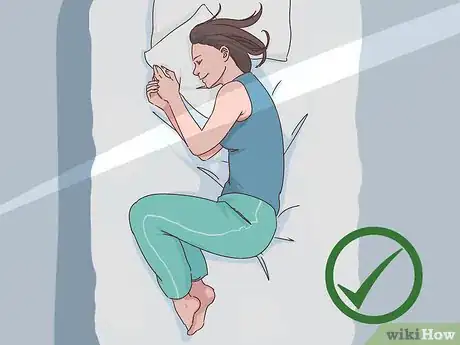
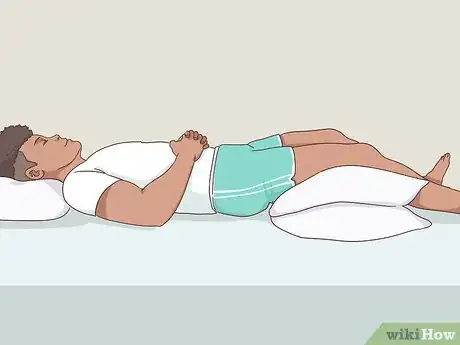
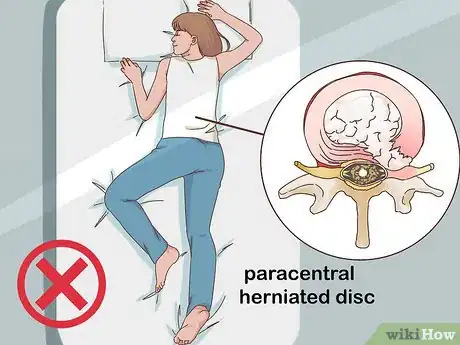
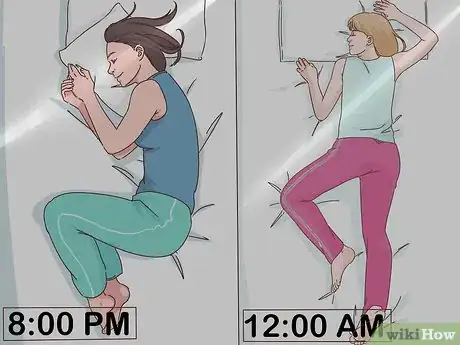
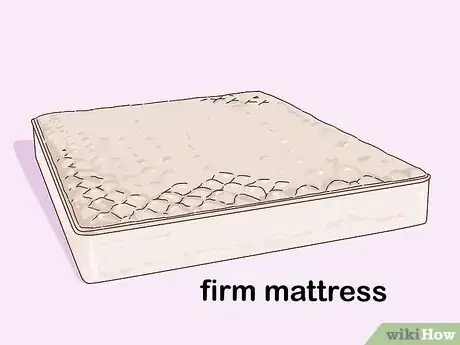
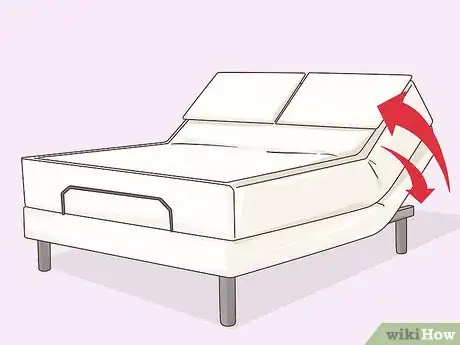
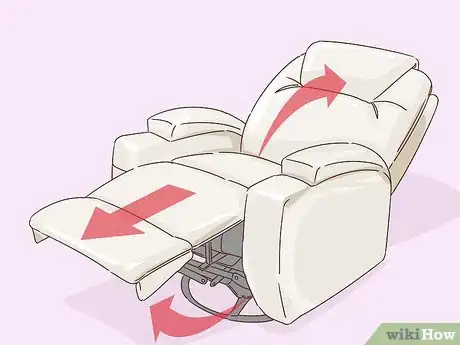
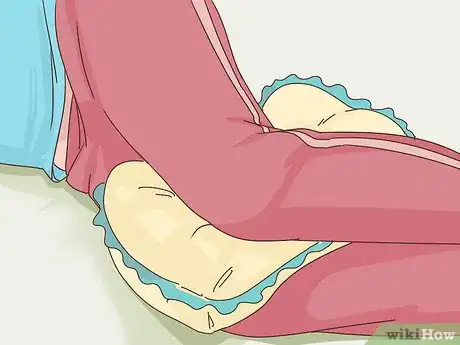
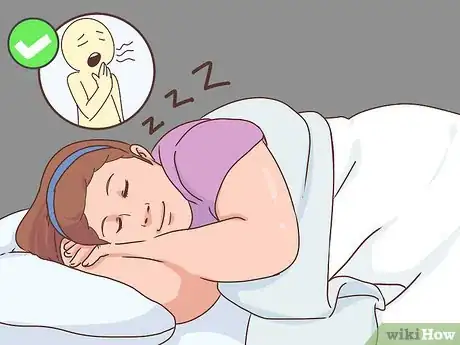
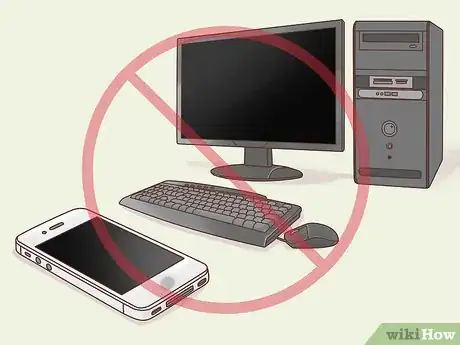


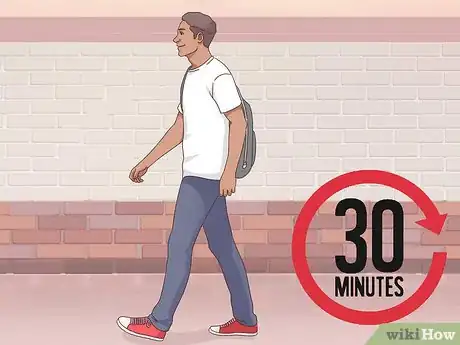
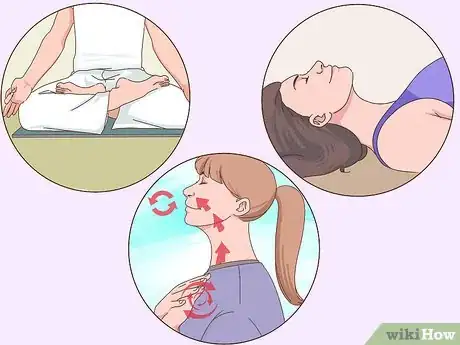
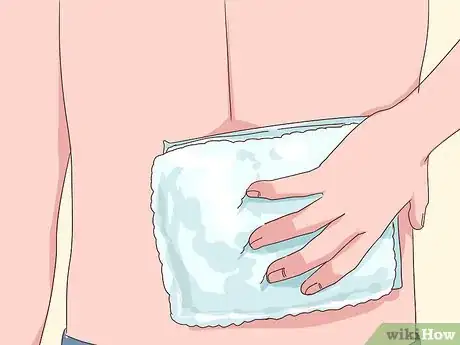











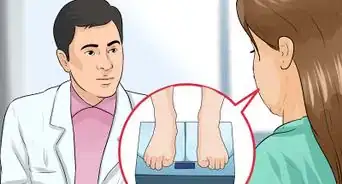
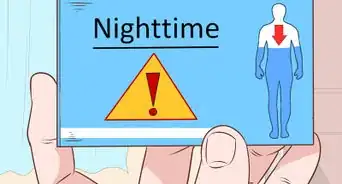
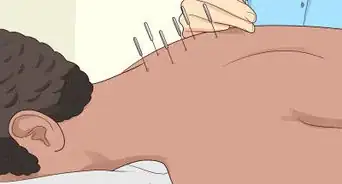
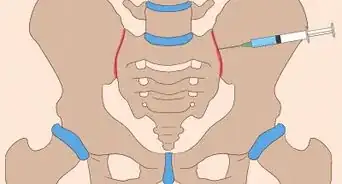


















































Medical Disclaimer
The content of this article is not intended to be a substitute for professional medical advice, examination, diagnosis, or treatment. You should always contact your doctor or other qualified healthcare professional before starting, changing, or stopping any kind of health treatment.
Read More...